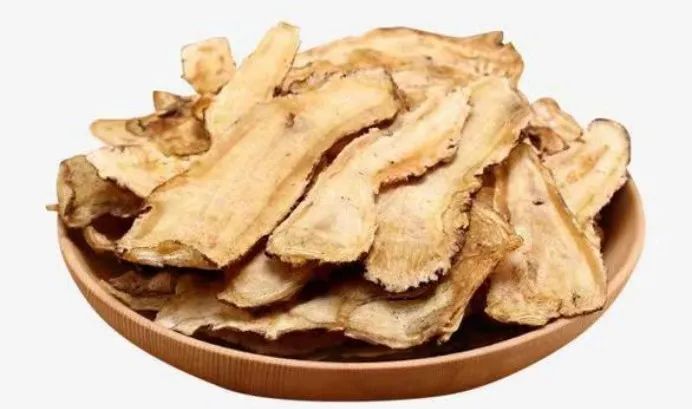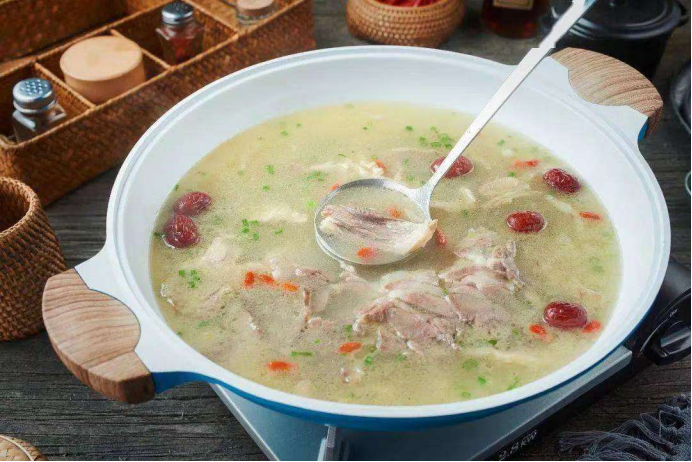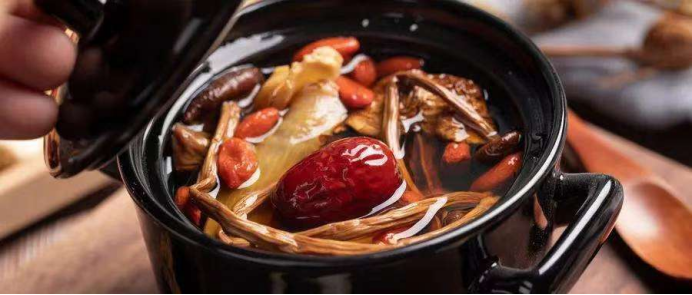Alias: Gan Gui, Mawei Dang Gui, Qin Gui, Mawei Gui, Yun Gui, Xi Dang Gui, Min Dang Gui.
Source: The dried root of the plant Angelica sinensis from the Apiaceae family.
Properties: Sweet and pungent in flavor, warm in nature. It enters the Liver, Heart, and Spleen meridians.
Functions: Nourishes blood, invigorates blood circulation, regulates menstruation, alleviates pain, moistens the intestines, and relieves constipation.
Applications: Used for blood deficiency with symptoms such as pale complexion, dizziness, palpitations, irregular menstruation, amenorrhea with pain, abdominal pain due to deficiency and cold, rheumatic pain, trauma from falls, carbuncles, and constipation due to dryness in the intestines. Wine-infused Dang Gui invigorates blood and regulates menstruation, used for amenorrhea with pain, rheumatic pain, and trauma.
Dosage: 6-12g

According to legend, in an ancient village on the border of Yunnan, there was a young herbalist who had just married. Due to financial pressures, he had to go into the mountains to gather herbs. His wife was reluctant to part with him, and as they tearfully said goodbye, he advised her to endure hardships at home and allowed her to remarry if he did not return in three years. Little did he know, he was unable to communicate during his three-year absence due to the deep mountains and long distances. During this time, his wife, worried about her husband, became weak and developed a serious gynecological condition. Seeing her deteriorating health, her mother-in-law suggested she remarry. Initially hesitant, the wife eventually succumbed to the pressure, believing her husband was likely dead after three years. Shortly after her remarriage, her husband returned and asked why she did not wait for him. She wept and said, “You did not return for three years, not a single letter, and now I have married another man, my heart is broken with regret.” The young man was also filled with remorse. He gave her the herbs he had gathered, and after she consumed them, her gynecological condition was miraculously cured. From then on, people recognized this herb as a remedy for women’s diseases and named it Dang Gui, meaning ‘to return’.
Components: Contains essential oils, butyric acid lactone, ferulic acid, niacin, sucrose, and various amino acids, as well as sesquiterpenes.
Pharmacological Effects:
-
In studies involving anticoagulant medications or individuals with coagulation disorders, Dang Gui has shown an antiplatelet aggregation effect. Therefore, it may cause abnormal coagulation in those using anticoagulants or with coagulation disorders. It is not recommended for women with heavy menstrual bleeding.
-
For hormone-related diseases (such as breast cancer), animal studies have shown that Dang Gui extracts have estrogen-like activity. Although the specific effects and extent are still uncertain, it is not recommended for patients with hormone-related diseases, such as breast cancer.
-
Other: Although Dang Gui is beneficial, there have been reports of side effects such as headaches, arrhythmias, abnormal blood pressure, dizziness, insomnia, and nausea. Caution is advised when taking it. Additionally, Dang Gui may affect liver enzyme activity, thus impacting the metabolism of other medications, so caution is warranted when taking other drugs.
Dang Gui Culinary Recipe
Dang Gui Lamb Soup

Source: From “Jisheng Fang”.
Ingredients: Dang Gui (Angelica Sinensis) and Dang Shen (Codonopsis) each 15g, Huang Qi (Astragalus) 30g, fresh ginger 10g, lamb 500g.
Preparation: Slice the lamb, wrap each herb in gauze, and boil together until the meat is tender. Drink the soup and eat the meat.
Functions: This recipe uses Ren Shen (Ginseng) and Huang Qi (Astragalus) to tonify Qi, lamb to nourish blood, Dang Gui to invigorate blood and alleviate pain, and ginger to warm the middle and strengthen the stomach.
Applications: Used for postpartum Qi and blood deficiency, fever with spontaneous sweating, and body aches.
Dang Gui Blood Nourishing Soup

Source: From “Nei Wai Shang Bian Huo Lun”.
Ingredients: Dang Gui 10g, Huang Qi 60g.
Preparation: Boil in water to drink. The dosage can be increased to make a paste for consumption.
Usage: This formula emphasizes Huang Qi (Astragalus) for Qi tonification, with Dang Gui (Angelica Sinensis) to nourish blood.
Applications: Used for Qi and blood deficiency after blood loss, or for fatigue and dizziness due to Qi deficiency and blood loss.

